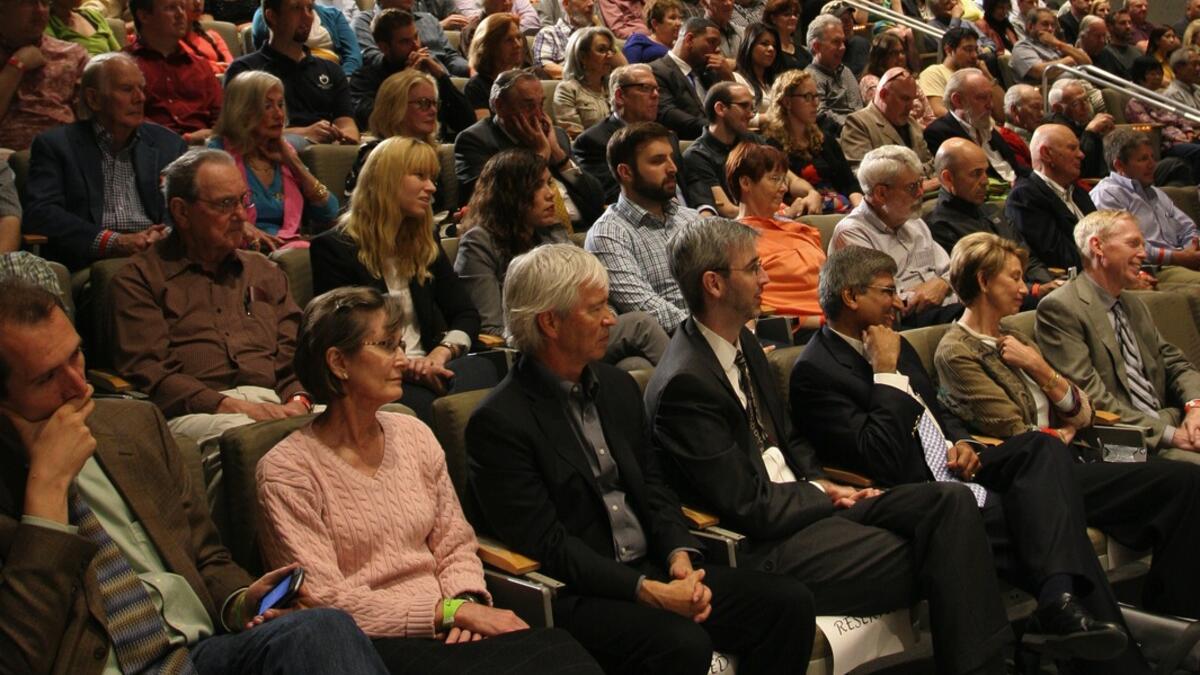Zócalo Public Square celebrates 10 years of exchanging ideas

In 2003, writer Gregory Rodriguez was a happy loner. But an untoward comment at a gathering of Southern California writers turned him into an accidental activist, and a builder of intellectual community in cities throughout the Western U.S.
Vowing to create and host an intellectual space where everyone would be welcome, Rodriguez chose to name his nascent organization after Mexico City’s grand, all-embracing central plaza, the zócalo. Zócalo’s events would be free to the public. Every member of the audience would be invited to a reception with speakers where beer and wine and soft drinks would be served, for free. And the events would be about ideas rather than preaching to choirs or heavy-handed advocacy.
Rodriguez invited Adrian Wooldridge, (now the management editor at The Economist), to give Zócalo’s first lecture in Los Angeles, on the history of the idea of the corporation, on April 9, 2003. Three more events followed that year, and the organization expanded rapidly throughout the city and beyond.
In 2011, at the invitation of President Michael Crow, Rodriguez founded the Center for Social Cohesion at ASU, and Zócalo officially became a project of CSC and the New America Foundation in Washington, D.C. Zócalo also began regularly presenting events at venues around Phoenix – the most recent of which featured President Crow and former Intel CEO and president Craig Barrett discussing the future of the computer chip.
Today, Zócalo is a full-fledged "ideas exchange" that blends live events and humanities journalism and whose mission is to build community around ideas. Last year, Zócalo hosted 70 events in 11 cities and published over 600 original features.
Learn more about the founding of Zócalo and its 10th birthday.